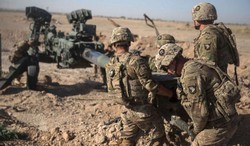The University was represented at the United Nations at the first ever youth-led briefing on international women’s rights and violence against children on Monday, March 25.
The briefing, which was organized by the U.N.’s Department of Public Information and Non-Governmental Organizations, was attended by five University students under the auspices of the Department of Political Science and Sociology as well as the Institute for Global Understanding, Monmouth University’s NGO.
During the two-hour conference, which was presided over by the United Nations’ Secretary General’s Youth Envoy, Ahmad Alhendawi, issues such as domestic and sexual violence and gender-based discrimination were discussed by a panel of U.N. experts as well as by community leaders from the greater New York City area. The panelists later led an interactive group discussion which posed a series of yes-no questions to those in attendance with regard to the audience’s perceptions of race and gender-based inequalities, discrimination, and violence in everyday society.
Senior communication major Alexandria Fitzgerald was one of the students who attended the conference as well as played a role in organizing Monmouth’s participation in the event. She felt that this event presented a valuable opportunity to reach out to her fellow students and encourage their involvement in community outreached.
Fitzgerald said, “I wanted to be the facilitator for students to make connections both at school and in the community, especially for those students who want to get involved but may be unsure as to how they should go about doing so.” Fitzgerald also added that the experience served as a valuable résumé builder for students interested in pursuing careers, not only in political science, but other humanities fields as well. “Not many college undergrads can say that they participated in a conference at the United Nations,” Fitzgerald stated.
Ryan Kennedy, sophomore political science major, said, “The trip being my first to the U.N., it was very interesting to see someone who answers directly to the Secretary General about a matter that has increasing significance in the world.”
Accompanying the students to the United Nations was Dr. Charles Cotton of the Political Science Department.
Cotton, who has taught several courses in International Relations, stressed the importance of exposing students to international organizations such as the U.N.
“Bringing students to the U.N. gives them the opportunity to see people from all around the world working under one roof. It shows them that diverse groups of people can rally around one goal,” said Cotton.
As the world becomes increasingly globalized and emphatic on international cooperation, organizations such as the United Nations are likely to play an increasingly vital role in world affairs, a prospect which may see many current students of political science pursue careers with international organizations.
Cotton elaborates, “More exposure as an undergrad to international organizations (such as the U.N.) will, in many cases, steer students, in that direction.”


